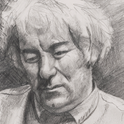It is hard to make sense of right-wing politics today. Across the world, leading figures on the right have switched from proclaiming the unimpeachable wisdom of international markets to demanding the repatriation of national sovereignty over global trade. Why has there been such a noisy pivot by conservative thought-leaders away from classical liberal orthodoxy? Quinn Slobodian, one of the nominees for Prospect’s World’s Top Thinker 2024 award, is here to help with the definitive guide to the changing ideological landscape on the right.
Slobodian’s previous book, Globalists, was a brilliant intellectual history of neoliberalism, but there was an irony in its timing. Published to deserved acclaim in 2018, Globalists made the case that neoliberal intellectuals such as Friedrich Hayek had sought to disempower democratic states by “encasing” them in an international legal order that would discipline the policies of national governments in a pro-capitalist direction. Slobodian argued that these ideas helped shape the legal regime of the globalising economy in the late 20th century. By 2018, though, the new style of anti-globalising right-wing politics had risen to prominence. In the era of Trump and Brexit, it seemed that national sovereignty had come roaring back and was sponsored by precisely those parties in the UK and the USA that had previously favoured turbo-charging international capitalism.
Crack-up Capitalism, Slobodian’s sequel to Globalists, is in part his account of this new form of radical right advocacy. Slobodian shows that, contrary to appearances, the right-wingers who seemingly positioned themselves against “globalism” can still be located within the broad family of neoliberal ideologies that he masterfully chronicled in his first book. But Crack-up Capitalism, published in hardback last year and in paperback on 4th April this year, is not a pure history of right-wing ideas. While it is partly about the ideological evolution of libertarianism, it is also partly a powerful new account of how capitalism itself has changed in the last 30 years.
A standard historical image of the 1990s and early 2000s is of peak globalisation: the emergence of the EU, Nafta and the WTO between 1993 and 1995 seem from this perspective like milestones in the rise of a new international market order that bound states into intricate cross-border flows of goods and services. Crack-Up Capitalism offers a counter-narrative to this. The 1990s, Slobodian argues, were also a time of fragmentation, in which existing political units came under pressure and split apart, leaving space for the emergence of what he dubs “the zone”. Where the central metaphor of Globalists was “encasement”—the idea that neoliberals sought to limit democratic states by binding them with international rules—the key image of Crack-Up Capitalism is “perforation”. By this, Slobodian means that some leading capitalists, and their libertarian advocates, seek to punch holes within existing states by carving out areas within which regulations are repealed and taxation lowered. At the extreme, they hope eventually to use these zones to break apart existing centralised states or international organisations to establish a capitalism that escapes from the reach of democracy altogether.
Some leading capitalists seek to punch holes within existing states by carving out areas within which regulations are repealed and taxation lowered
There are more of these “zones” than we might initially suspect. By Slobodian’s count, there are over 5,400 today, most of them located outside of Europe and North America, encompassing everything from tax havens to huge self-governing cities to sequestered tariff-free factories or warehouses. His book features extraordinary case studies of some of the most striking: from the tax haven of Liechtenstein to gated communities in the US bound by their own private rules and security services. Along the way, we also meet some remarkable characters. Some will be familiar to students of the right, such as the veteran “paleo-libertarian” Murray Rothbard, who in the early 1990s sought to join forces with secessionist neo-confederates to break up the US. Others will be less well known, such as Prince Hans-Adam II, the current absolute monarch of Liechtenstein and an enthusiastic libertarian theorist and eurosceptic.
In British politics today we are familiar with one iteration of the zone: the freeports created by the government in 2020 as part of its “levelling-up” agenda, which waive regulations and taxes in places such as Teeside or the East Midlands airport. But, as Slobodian shows, one origin story of these policies reaches far back into British imperial history. Hong Kong is the archetypal zone. After the territory was taken from China in 1841, colonial governors presided over low taxes and tariffs, preserving Hong Kong as an autonomous minimal state even as the imperial metropole tacked in a welfarist direction in the mid-20th century. Hong Kong, Slobodian shows, acquired a cult-like status among libertarian thinkers, repeatedly invoked as a model of how dynamic capitalism might be without the encumbrances on wealth creation imposed by democratic governments. Hong Kong became to the right what Sweden has been to the democratic left—an example of how high political aspirations can apparently be achieved in practice. Milton Friedman famously recommended Hong Kong in his 1980 TV show Free to Choose, dubbing it “an almost laboratory experiment in what happens when government is limited to its proper function.”
As the case of Hong Kong shows, Slobodian is not making the unvarnished idealist claim that zones are a creation of right-wing economists. Perhaps responding to other scholars who have been sceptical of a focus on intellectuals, his argument is rather that libertarians jumped on underlying economic trends towards fragmentation and sought to deepen and champion them. For example, one important factor in the emergence of many zones was clearly British imperialism and its aftermath. Slobodian examines Hong Kong’s journey from an autonomous imperial outpost to its current role as a special zone within China; the city-state of Singapore, which achieved formal independence from the UK in 1965 and reinvented itself as a low-tax trade hub; South Africa’s evolution from a British dominion to an apartheid state that sought to legitimate itself by resettling its black population in supposedly sovereign “Bantustans”; and Dubai’s transition from the margins of British imperial control to becoming a key player in contemporary global capitalism.
While deep geopolitical and economic forces produced these new spaces for economic experimentation, libertarians were inspired by these developments and tried to press them further. Hong Kong was an influence on the Thatcher government’s “enterprise zones”, including the building of Canary Wharf by the unelected London Docklands Development Corporation. South African libertarians were instrumental in transforming one of the Bantustans, Ciskei, into a strange, offshore economic space characterised by cheap labour and low taxes. Some present-day libertarians are impressed by Dubai’s achievements and even attribute them to the long-run time horizons of a monarchical regime rather than the quick-fix gratification purportedly pursued by democratic governments.
Advocates of Brexit, such as Jacob Rees-Mogg, famously envisaged Britain becoming “Singapore-on-Thames”, a low tax and deregulated zone located literally offshore from the EU. Rees-Mogg’s father is a key figure in Crack-Up Capitalism (Jacob himself worked in Hong Kong during his banking career). William Rees-Mogg, best known in British public life as the editor of the Times between 1967 and 1981, achieved an unlikely second act in his career as the co-author of one of the great texts of secessionist libertarianism, The Sovereign Individual. Published in 1997, just as the New Labour years began, it provided a parallel right-wing response to newly fashionable ideas about globalisation and the knowledge economy. Where the third-way social democracy of Blair or Clinton used global economic competition to argue for more state investment in education and training, Rees-Mogg and his co-author, James Dale Davidson, argued that the new knowledge economy, and the rise of the internet, would enable the economic elite to secede from the nation-state and thus bankrupt the welfare state. Squirreling away their incomes in cyberspace, and thus depriving states of tax revenue, these “sovereign individuals” would flee to new jurisdictions such as Singapore “where indebtedness is low and governments have already been restructured.” They doubted that a “rational consumer of sovereignty services” would “care whether Singapore is a mass democracy or a proprietorship of Lee Kuan Yew.”
William Rees-Mogg achieved an unlikely second act in his career as co-author of one of the great texts of secessionist libertarianism
As Slobodian shows, The Sovereign Individual has enjoyed huge influence among Silicon Valley libertarians (the tech billionaire Peter Thiel wrote a preface to the 2020 edition). Crack-up Capitalism closes with an account of the extravagant ideas of contemporary techno-libertarians, exemplified by the entrepreneur Balaji Srinivasan, who aim to secede from the state in the first instance online, by forming a virtual network committed to building a new polity in the “cloud country”, before then instantiating that community in a physical territory organised along the lines of—you’ve guessed it—Singapore.
Hong Kong and Singapore also make an appearance in Johan Norberg’s Capitalist Manifesto, published in hardback last summer (the paperback is due in July this year). Norberg is a classical liberal true believer, complete with an affiliation with the US free market thinktank The Cato Institute (co-founded by Murray Rothbard) and previous books such as In Defence of Global Capitalism (2001). Like Slobodian, though, he wants to offer a new take on these issues. Where previously Norberg took on the anti-globalist left, he is now sallying forth to do battle with the Trumpian protectionist right (though, in practice, he has a lot to say about the left as well). In Norberg’s view, Hong Kong and Singapore stand out as exemplars because they opened their economies and showed that free trade could beat protectionism. As Slobodian points out, the story is more complicated than that. Hong Kong benefitted from its unique location next to China, gaining its dynamism from the influx of Chinese refugees after 1945 and from its role as the main trading outlet for the otherwise isolated Chinese economy, eventually becoming the principal entry point for foreign investment into China in the late-20th century. In Singapore, contrary to its depiction in libertarian thought, infrastructure planning and land nationalisation were both crucial to its economic model and the state’s legitimacy, with most Singaporeans living in public housing.
There are some novel aspects to Norberg’s case, in the sense that he opposes now-fashionable elite discourses about the negative impact of deindustrialisation and the desirability of industrial policy. Deindustrialisation, he thinks, should be welcomed as an indication that a society has reached a new stage of economic affluence in which we spend more on services than on basic goods and in which manufacturing has become more productive. He also doesn’t have much time for Mariana Mazzucato’s influential proposals about using the state to promote economic innovation. New ideas and entrepreneurship, Norberg argues, require decentralised initiatives by individuals responding to market incentives, not by politicians and bureaucrats with no skin in the game.
These contemporary flourishes aside, Norberg’s overall argument is a classical one: life has got much better for many people in the decades of globalised capitalism, around 1990 to 2020, in the sense that poverty, illiteracy, child mortality and hunger have all declined. In fact, Norberg argues, on these counts and several others “it has been better than any other era humanity has experienced”. In Norberg’s view, it is capitalist economic growth that has produced this social progress.
There is more to say about this case than is possible here, but one line of criticism would be to press at how far economic growth is a necessary but insufficient condition for social progress. Yes, growth is crucial, but so are social and political institutions that shape markets and share the fruits of that growth: schools, healthcare systems, cash transfers and so on. It seems unlikely, for example, that illiteracy declined without significant investment in education systems, or that state spending on education doesn’t help boost economic growth. Norberg largely argues against opponents who dismiss markets and trade altogether. But surely the urgent political question is whether we might be able to secure even better social outcomes with more anti-poverty and egalitarian public policies within a market economy.
Meanwhile, Norberg is sanguine about the impact of capitalism on democracy. Insofar as he mentions it, he assumes that it is capitalism that fosters democratic self-government. The libertarians in Slobodian’s book raise a more troubling perspective: that a certain form of capitalism is turning against democracy. Authoritarian capitalism is evident in many places around the world—China, Russia, the Middle East—sponsored by states with little interest in freedom. That some libertarians have aligned themselves with such states, and take inspiration from them, tells us a lot about their priorities, none of it good.













